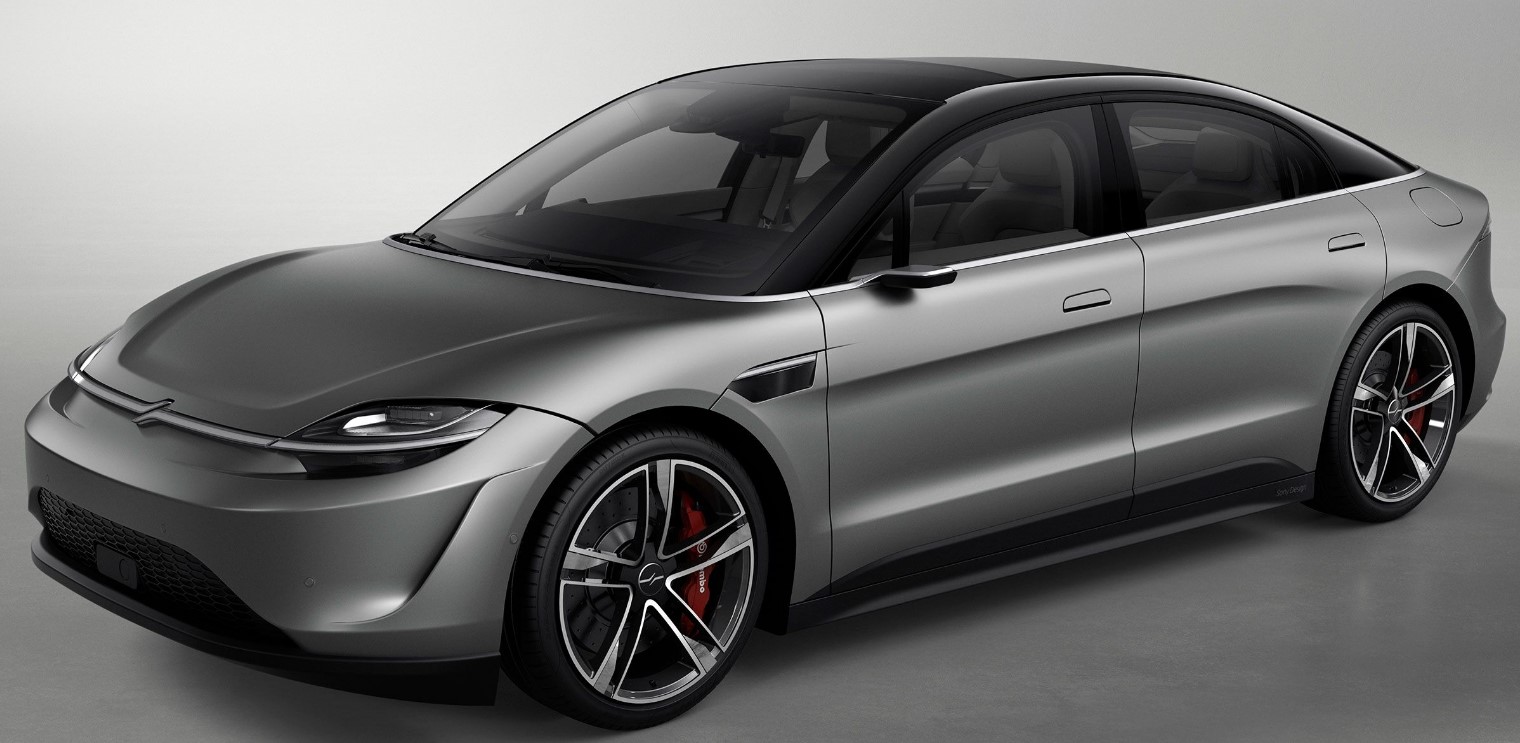Sony and Microsoft Are Driving the Future of Cars
Executives at Sony believe the company should have a larger slice of the automobile component marketplace. So, they built a fully functioning all-electric stunner.
The Sony Vision-S was the talk of the Consumer Electronics Show in Las Vegas last week. Although the concept electric vehicle may never be mass produced, it shows just how quickly the car business is changing.
Future cars will be electric, autonomous and most importantly, an extension of personal space.
This evolution makes sense. Elon Musk, the founder of Tesla (TSLA), taught the world that EVs could be fun to drive, safe and practical. And carmakers have been chasing autonomy for decades. Unlike love beads and bubble sleeves, self-driving cars is a 1960s fantasy that has never gone out of fashion.
The big change is cultural. Sony managers are betting vehicles will become mobile living spaces.
In the past cars were utilitarian. They moved us between living spaces. However, connectivity changes everything. The technology exists today to move connections seamlessly from our living rooms and home offices directly into moving cars. Future vehicles will untether further from gas stations, repair shops and human input altogether.
It’s the central reason Sony wants a foothold in the auto components market. The Japanese consumer electronics giant is well positioned to serve all the key markets.
Vision-S shows how the company adapted its best-in-class image sensors to make cars safer. Exterior mounted cameras replace the rear and sideview mirrors. A dash mounted senor uses facial recognition to unlock the doors and greet the driver upon entry.
All-in, 33 separate sensors monitor all directions outside and inside the vehicle. Managers call this a safety cocoon. In an emergency, integrated technology systems react faster and more thoroughly than humans.
Connectivity also plays a big role in sustainability. As vehicles become less reliant on independent hardware systems like internal combustion engines and transmissions, software will be paramount. New features and even functional repairs will come through over-the-air software updates.
Cars will evolve, letting owners keep them longer. That should reduce the environmental impact of transportation.
Related post: New Green Growth Electrifies Auto Industry
Sony managers see reduced hardware turnover as an opportunity to build longer-term brand loyalty. Vision-S is a showcase its long history of infotainment prowess.
The dash features an immersive 48 inch, panoramic touchscreen flanked by smaller displays that mimic sideview mirrors. Two comfortable buckets seats in the back also get generous widescreen monitors, so riders can view content independently. No more arguments over Spiderman or Frozen.
Sound wise, the entire cabin is bathed in 360 Reality Audio, a technology currently featured in Sony speakers and headphones. The tech uses object-based spatial audio, so sounds seems as though they are coming from all directions of a 360-degree sphere. It’s impressive tech.
Sony is a terrific business with category leading products across many segments. For investors, however the best way to play the evolution of cars as new mobile living spaces is the firms building the software platforms to make this possible.
Boston Consulting Group estimates the market for in-vehicle connectivity will reach $159 billion by late 2020. The cloud solutions marketplace, the software glue that keeps everything together, is expected to reach $66 billion by 2022.
Accenture (ACN), a global professional services company, in 2018 found that test autonomous vehicles were generating between 4–6 terabytes of data daily. As the number of sensors grow, that figure is certain to rise. This information is critical for the development of AI models required for autonomy.
The leader in vehicle cloud solutions, by far, is Microsoft (MSFT). The Redmond, Wash. software giant is quietly building the connected car platform of choice within the industry. Renault Nissan, in January 2017, became the first to join. Volkswagen followed in October 2018. Since then Microsoft has signed deals with Volvo, BMW, Toyota and Ford.
The key selling point is scale, and its longstanding expertise with operating systems, artificial intelligence and file storage.
Microsoft shares trade at 25.6x forward earnings. The market capitalization is $1.23 trillion. The stock is up 55.7% during the past 12 months. Most of its growth prospects are widely understood. However, the connected car platform is being neglected by investors. That will change as more cars begin to look more like Vision-S.
Long term investors should consider buying Microsoft into any significant weakness.
Best wishes,
Jon D. Markman





